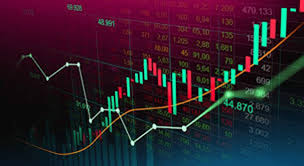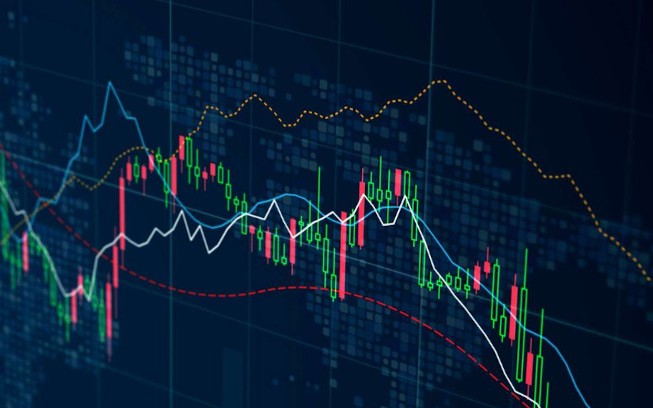Understanding Forex Currency Trading Brokers
Forex currency trading brokers play a pivotal role in the global financial market, providing platforms for traders to buy and sell foreign currencies. These brokers facilitate the trading process, connecting individual traders to the vast currency markets. If you’re interested in entering this exciting world of forex trading, it’s essential to understand the various aspects of forex brokers. For reliable information and services, forex currency trading broker protradinguae.com is a great resource.
What is a Forex Broker?
A forex broker acts as an intermediary between traders and the forex market. When you trade currencies, you do not buy them directly. Instead, you place orders through a broker, who executes the buy or sell on your behalf. There are various types of brokers in the forex market, including dealing desk (DD) and no dealing desk (NDD) brokers. Understanding these types can help you choose the right broker for your trading style.
Types of Forex Brokers
1. Dealing Desk (DD) Brokers
Dealing desk brokers, also known as market makers, create a market for traders. They quote both buy and sell prices and take the opposite side of a trader’s position. This can sometimes result in a conflict of interest, as the broker profits when a trader loses. Nonetheless, DD brokers often offer tighter spreads and guaranteed execution, making them appealing to new traders.
2. No Dealing Desk (NDD) Brokers
NDD brokers provide direct market access to the forex market without taking the other side of a trader’s position. They typically aggregate quotes from various liquidity providers, allowing for a wider range of pricing options. NDD brokers can be further divided into STP (Straight Through Processing) and ECN (Electronic Communications Network) brokers, each offering different features regarding pricing, speed, and fees.
Key Features to Look for in a Forex Broker
Choosing the right forex broker can significantly affect your trading experience. Here are some crucial features to consider when selecting a broker:
1. Regulation
Check if the broker is regulated by a reputable financial authority. This provides some assurance that the broker follows industry standards and protects customer funds. Major regulatory bodies include the Financial Conduct Authority (FCA), the Commodity Futures Trading Commission (CFTC), and the Australian Securities and Investments Commission (ASIC).
2. Trading Platform
The trading platform is a critical tool for forex traders. It should be user-friendly, stable, and equipped with advanced trading tools such as charting capabilities and market analysis resources. Popular platforms include MetaTrader 4, MetaTrader 5, and cTrader.
3. Spreads and Commissions
Spread refers to the difference between the buying and selling prices. Check the spread offered by the broker as this can affect your overall profitability. Additionally, brokers may charge commissions; it’s essential to understand the fee structure before you commit to a broker.
4. Leverage
Leverage allows traders to control a larger position with a smaller amount of capital. Different brokers offer different leverage ratios, so ensure you understand how leverage works and choose a broker that aligns with your risk tolerance and trading strategy.
5. Customer Support
Reliable customer support can be invaluable, especially for new traders. Look for brokers that offer various channels of communication (like chat, email, and phone support) and are responsive to queries.

Forex Trading Account Types
Forex brokers typically offer multiple types of trading accounts, each tailored for different trading strategies and account sizes:
1. Standard Accounts
Standard accounts require a higher minimum deposit and usually offer the best spreads and trading conditions. These accounts are suitable for more experienced traders.
2. Mini Accounts
Mini accounts require a lower minimum deposit, making them accessible for novice traders. They allow trading in smaller lot sizes, which can help traders manage risk more effectively.
3. Micro Accounts
Micro accounts are designed for beginner traders who want to practice trading with real money but in smaller quantities. These accounts have the lowest minimum deposit requirements and allow very small trades.
Getting Started with Forex Trading
If you are new to forex trading, you can follow these steps to get started:
1. Educate Yourself
Before you start trading, it’s critical to understand the fundamentals of forex markets, trading strategies, and risk management. Numerous online resources, courses, and books can help you gain knowledge.
2. Choose a Reliable Broker
As discussed, selecting a reputable broker is essential. Look for one that aligns with your trading goals, preferences, and level of experience.
3. Open a Trading Account
Once you’ve selected a broker, you can open a trading account. Depending on the broker, you may need to provide identification and proof of residence to comply with regulatory requirements.
4. Use a Demo Account
Many brokers offer demo accounts, allowing you to practice trading with virtual money. This is an excellent way to familiarize yourself with the trading platform and develop your trading skills before committing real funds.
5. Start Trading
After gaining enough knowledge and practice, you can start trading with real money. Remember to manage your risk and continuously educate yourself to improve your trading skills.
The Future of Forex Trading
The forex market is constantly evolving, driven by technological advancements, market changes, and regulatory developments. Retail forex trading has become increasingly popular due to the accessibility of online trading platforms and the proliferation of information resources. Traders must stay informed about market conditions, news, and industry trends to remain competitive.
In conclusion, understanding forex currency trading brokers is crucial for anyone looking to enter the forex market. By choosing a reliable broker and educating yourself about the trading process, you can leverage the opportunities available in this dynamic marketplace.
